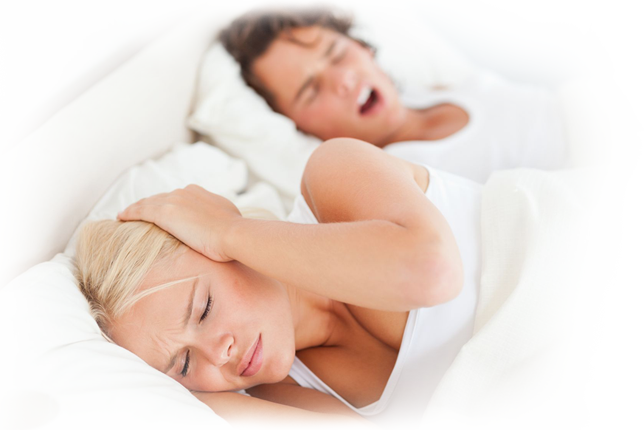Sleep surgeon- snoring specialist
Full-spectrum ENT examination and treatment with the latest technology. Individual surgical or conservative therapy for snoring and sleep apnea.

While you sleep, the muscles of your throat relax, your tongue falls backward, and your throat becomes narrow. The intake of large amount of alcoholic drinks or food before sleep can increase the emergence of snoring. As you breathe, the walls of the throat begin to vibrate – generally when you breathe in, but also, to a lesser extent, when you breathe out. These vibrations lead to the characteristic sound of snoring. Sometimes the walls of the throat collapse completely so that it is completely occluded, creating a condition called apnea (cessation of breathing). Apnea is followed by a characteristic noise that is called snort and the sound effect of snoring changes irregular and atypical. The interruption of sleep can lead to excessive daytime sleepiness, memory problems and disturbance of concentration, moreover hypertension or cardiac disorders. Sleep apnea is a serious condition which requires medical attention.
There are several factors which facilitate snoring. First, the normal aging process leads to the relaxation of the throat muscles, thus resulting in snoring. Anatomical abnormalities of the nose and throat, such as enlarged tonsils or adenoids, nasal polyps, or deviated nasal septum cause exaggerated narrowing of the throat during sleep and thus lead to snoring. Functional abnormalities (e.g. inflammation of the nose and/or throat as may occur during respiratory infection or during allergy season) will result in snoring. At some people, sleep position, such as sleeping on your back, may lead to snoring. Alcohol is a potent muscle relaxant and its ingestion in the evening will cause snoring. Muscle relaxants taken in the evening may lead to or worsen snoring in some individuals. One of the most important risk factors is obesity, and in particular having a lot of fatty tissue around the neck.

The secret of the successful treatment is the profound examination by a somnologist and an otorhinolaryngologist. Sleep test such as polygraphy or polysomnography is mandatory and it shall be followed by physical examination and a special topodiagnostic method: the drug induced sleep endoscopy, that provides unique information about the patterns of the upper airway collapse during snoring. Based on these findings, individual therapy – surgery, oral device or CPAP- can be proposed.
Otorhinolaryngology- ENT: EarNoseThroat
Blocked nose, sore throat, hoarseness, upper airway infections? Why is it like this?
Filtrating the air from dusty particles and protecting the lower airway from pathogens are the most important functions of the upper airway. If the immune-barrier– especially the nasal mucosa- does not function perfectly recurrent infections, allergy and chronic inflammatory conditions can develop. It is determined by our individual constitution. Dysfunction of the upper airway can result in snoring and what is more in sleep apnea in special cases.


I am one of the Hungarian ENT specialists who have been officially trained for coblation technology. Coblation tonsillectomy/tonsillotomy and palatal surgery are the ultimate modern methods with less pain and good results. Radiofrequency treatment is successfully used in inferior turbinates and snoring or sleep surgery, besides I routinely use LASER in selected cases, too.